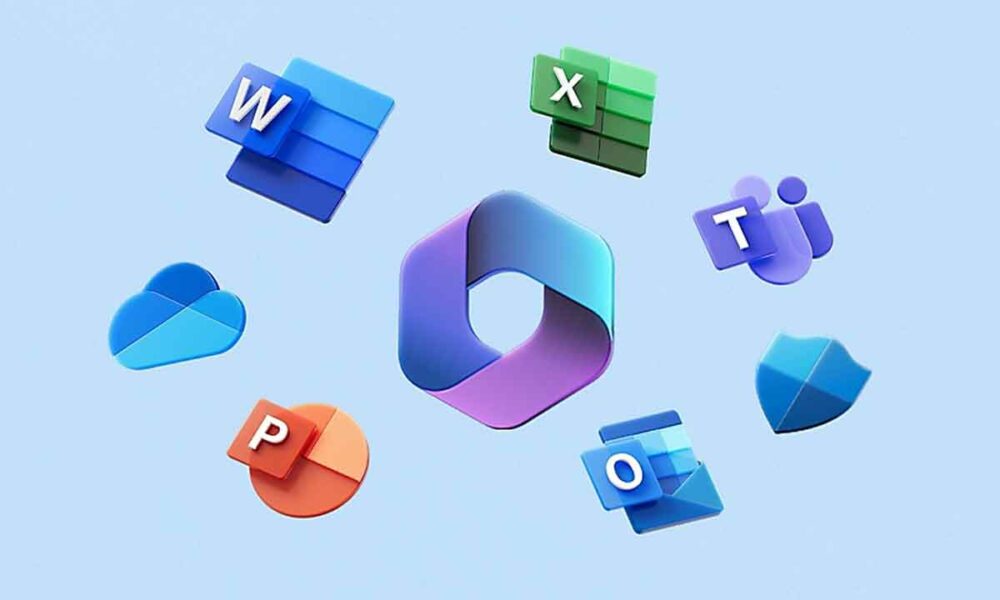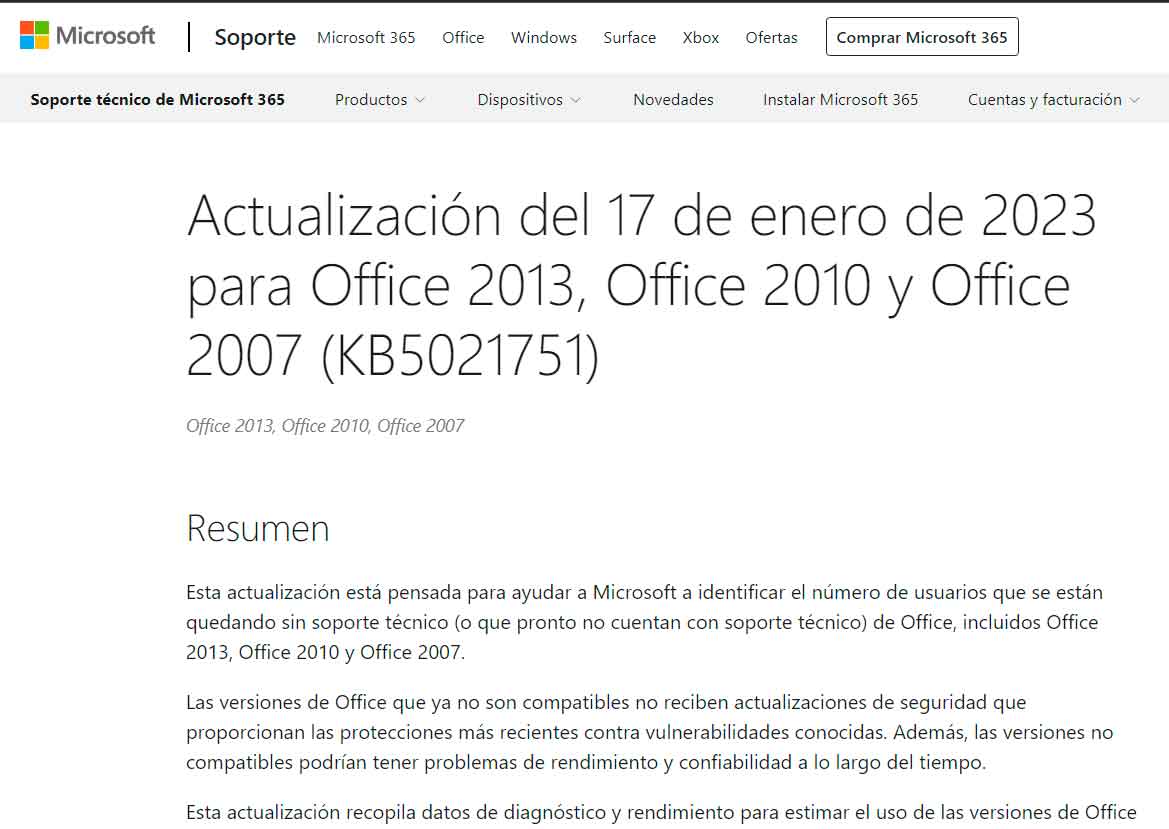
Surely you will remember, a few weeks ago we told you that Microsoft was looking for Office installations without support. To this end, those from Redmond published the KB5021751 update for Windows 10 and Windows 11. As we said at the time, no one can deny Microsoft’s honesty, at least in this case, when it comes to clarifying the purpose of said update. Well, this is what we could read, at that date, in its description:
«This update is designed to help Microsoft identify the number of users who are running unsupported (or soon to be unsupported) versions of Office, including Office 2013, Office 2010, and Office 2007. This update will run once silently without installing nothing on the user’s device.»
Now, what data is that exactly? The problem is that it was not clear what Microsoft wanted to find out about each “expired” Office installation or near the end of its life cycle. Just the version? The version and operating system? Maybe the country or region? Any patterns of productivity suite usage? It is well known that statistical data can be worth its weight in gold and that, therefore, it is highly valued by companies, but it is also unquestionable that obtaining it, without the necessary transparency, can be a violation of privacy. of the user.
That is precisely what many voices began to say when it became known about the function of this controversial update. With some questionable precedents in Microsoft’s history with Windows telemetry, suspicions were raised almost immediately and many users began asking about the information collected by the KB5021751 update.
Thus, just over two weeks after its launch, Microsoft has updated the description of the Windows update that collects data about Office. In this description he continues to clarify that he wants to obtain information about those old versions because of the security risks (in those that have already concluded their life cycle and, therefore, do not receive updates) and also have a negative impact on the productivity of its users, as it is not up to date in terms of functions and optimization of the suite’s tools.
Microsoft has updated the description to clarify that the update does not collect personal data from users on whose systems it runs. This is what we can read about it:
«This update collects performance and diagnostic data to estimate the usage of installed versions of Office to determine the best way to support and service these systems. This data is collected from log entries and APIs. The update does not collect license details, customer content, or data about non-Microsoft products. Microsoft values, protects, and defends privacy«.
Will it be true or not? Personally I think so, because from the outset they have acted transparently regarding the raison d’être of this update. I believe, however, that more situations like this could be avoided in the future if, from the outset, they made it explicit and clear beyond any reasonable doubt what information they want to obtain.




